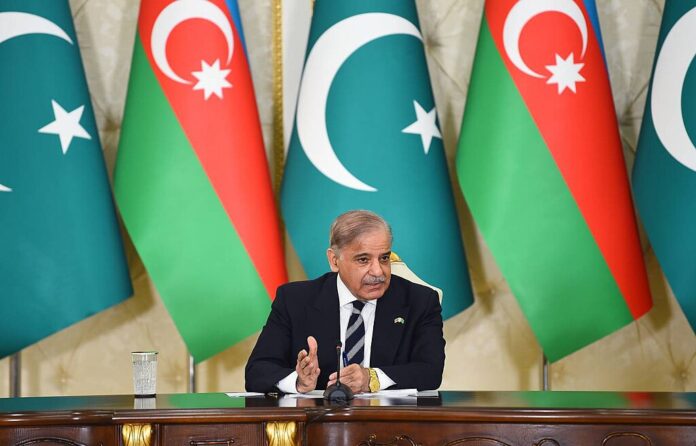Prime Minister Shehbaz Sharif and Li Qiang celebrate the opening of Gwadar Airport, marking a milestone in the Belt and Road Initiative and promising enhanced regional connectivity
In a landmark ceremony, Prime Minister Shehbaz Sharif and his Chinese counterpart, Li Qiang, inaugurated the Gwadar International Airport, a project poised to transform regional connectivity and bolster economic ties between Pakistan and China. Li, describing the bond between the two nations as “eternal,” highlighted the airport’s significance within the broader context of President Xi Jinping’s ambitious Belt and Road Initiative (BRI).
Upon his arrival at Islamabad’s Nur Khan Air Base on Monday afternoon, Li received a warm welcome, complete with a red carpet laid out by Prime Minister Sharif and other senior officials. The visit comes at a time when the relationship between the two countries is underpinned by a mutual commitment to economic development and security.
Following a series of high-level talks focused on a wide array of topics—including the China-Pakistan Economic Corridor (CPEC) and regional security—the two leaders virtually inaugurated the airport. Located in the coastal city of Gwadar, which is home to a strategically important deep-water port, the new airport stands as a testament to the collaborative efforts of both nations.
Embed from Getty ImagesIn his remarks, Premier Li celebrated the airport’s completion as a vital milestone in enhancing regional connectivity and facilitating international trade. “This world-class airport is not just an infrastructure project; it is a symbol of the close cooperation between our countries,” he asserted, underscoring the commitment of both nations to work towards mutual prosperity.
Li emphasised the airport’s role in accelerating development, particularly in Pakistan’s western regions, stating, “The completion of this critical infrastructure will facilitate increased international trade and stimulate growth in Gwadar.” He praised the dedication of both Pakistani and Chinese workforces in bringing the project to fruition and reiterated China’s priority of fostering prosperity for the Pakistani people.
In response, Prime Minister Shehbaz expressed gratitude to Li for the airport, characterising it as a generous gift to Pakistan. “I assure you that I will work closely with you to promote peace and security for the people of China in Pakistan,” he stated, signalling his intent to strengthen the partnership further.
The ceremony also featured the signing and exchange of 13 memoranda of understanding (MoUs) between the two countries across various sectors, including industry, commerce, and agriculture. Shehbaz noted that these agreements would soon materialise into concrete initiatives through collaborative efforts.
Among the key exchanges was a currency-swap agreement signed between the State Bank of Pakistan and the People’s Bank of China. Additionally, Planning Minister Ahsan Iqbal and China’s Commerce Minister Wang Wentao formalised documents related to the ‘Smart Classrooms’ project, aimed at enhancing educational facilities in Pakistan.
Iqbal also exchanged documents concerning the minutes of the 13th Joint Coordination Committee (JCC) meeting of CPEC and the 7th meeting of the Joint Working Group on Gwadar. A significant MoU for cooperation in promoting employment under CPEC was signed with Liu Susuo, Vice Chairman of China’s National Development and Reform Commission.
Further agreements were reached in the fields of information and communication, disaster reduction, and water infrastructure protection, with both nations demonstrating a shared commitment to comprehensive development. Notably, an MoU for a firefighting vehicle support programme in Islamabad was signed, alongside agreements related to human resource development and the Global Development Initiative (GDI).
Food Security Minister Rana Tanveer Hussain and Chinese Ambassador Jiang Zaidong also formalised an agreement concerning quarantine requirements for meat exports to China, illustrating the growing trade relationship between the two nations. Another MoU for the joint support of laboratories, along with one for the joint production of television programmes, further highlights the depth of collaboration across various sectors.
The inauguration of the Gwadar International Airport, therefore, not only signifies a monumental step in the implementation of CPEC but also reflects the unwavering friendship and strategic partnership between Pakistan and China. As both nations look ahead, the new airport promises to be a catalyst for economic growth, connectivity, and mutual development in the region
